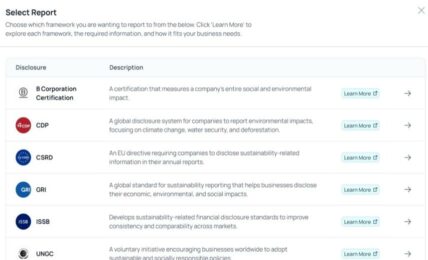Logistics giant DHL, renewable fuel supplier Neste, and sustainability focused supply chain certification provider ISCC announced a new collaboration to pioneer and test a new system for the tracking and reporting of emissions reduction in air travel through the use of sustainable aviation fuel (SAF).
Fuel accounts for the vast majority of the aviation sector’s emissions. Generally produced from sustainable resources, like waste oils and agricultural residues, SAF is seen as one of the key tools to help decarbonize the aviation industry in the near- to medium-term. SAF producers estimate the fuels can result in lifecycle GHG emissions reductions of as much as 85% relative to conventional fuels. Efforts to meaningfully increase the use of SAF by airlines face significant challenges, however, including the low supply currently available on the market, infrastructure to distribute SAF to airports, and prices well above those of conventional fossil-based fuels.
Several airlines and transport providers have begun offering a variety of book-and-claim systems, in which operators that lack access to SAF at their airport can purchase it, paying an additional surcharge, for use by operators elsewhere, with the airline or company that pays the premium for the SAF being credited for the use of the fuel and claiming a reduction in their net emissions footprint.
DHL, for example, offers a “GoGreen Plus” service to shippers, enabling them to achieve real emissions reductions through carbon “insetting” by investing in SAF to replace conventional fossil fuels. DHL has also set a target to use at least 30% of SAF blending for all air transport by 2030.
Dr. Klaus Hufschlag, SVP Sustainability Reporting & Controlling for DHL said:
“At DHL Group, we are already using significant amounts of sustainable aviation fuel to replace kerosine. It is important for us that there is a registry ensuring transparency and reliability of sustainability claims related to the use of SAF. A registry that regulates all necessary information from fuel suppliers as well as producers and provides traceability along the value chain, is key for credible transactions and builds the basis for a trustworthy book and claim mechanism.”
As part of the new collaboration, the companies piloted the ISCC Credit Transfer System, developed by ISCC. In the ISCC Credit Transfer System, SAF use and related sustainability benefits, namely greenhouse gas (GHG) emission reductions, are tracked and transferred via a registry operated by ISCC.
Prof. Dr. Gernot Klepper, Chairman of the ISCC Association
“ISCC has developed the ISCC Credit Transfer System as a natural continuation of our established and globally used supply chain certification systems. With the ISCC Credit Transfer System we provide a solution for traceable and credible Scope 1 and 3 emission reduction claims related to SAF use.”
The newly developed system of Neste, ISCC and DHL provides full traceability of SAF transactions and related sustainability benefits. This ensures that companies purchasing SAF and airlines using the fuel, can credibly and transparently claim emission reductions and use them towards their climate targets. At the same time, it can reduce the risk of incorrect sustainability claims and double counting of SAF volumes and their GHG emission reductions. In developing the system, ISCC worked closely together with key stakeholders from across the aviation sector. The system is designed to align closely with requirements set by the Science Based Targets initiative’s (SBTi) aviation guidance for SAF use in addressing organizations’ value chain (Scope 3) emissions.
A leading producer of SAF, Neste tested the system with ISCC in cooperation with DHL Group, a global brand in the logistics industry, earlier this year.
The pilot involved processing the first SAF transaction through the system, withNeste utilizing one of its ISCC EU-certified SAF deliveries to DHL‘sairline EAT and registering the environmental attributes of those SAF volumes, such as the emission reductions achieved, as “credits” in the ISCC registry. This enabled EATto claim a reduction in its own direct emissions (Scope 1) and the corresponding Scope 1 credit was retired on behalf of EAT ensuring the credit cannot be used again. The Scope 3 credit for the reduction in indirect emissions achieved was transferred to DHL’s’ account in the registry.
As part of their GoGreen Plus service, DHL was then able to credibly verify the emission savings in the customers’ value chain Scope 3 emissions achieved and the corresponding SAF credit was subsequently retired.
Following the successful piloting of the ISCC Credit Transfer System, the system is now ready for public consultation and can afterward be used by all companies – airlines, logistic service providers and corporate end-customers – wanting to ensure credible and transparent reporting of emission reductions from the use of SAF.
Jonathan Wood, Vice President Commercial and Technical Management from Neste’s Renewable Aviation business unit, said:
“SAF is a key solution to reduce aviation-related greenhouse gas emissions but it’s also critical for airlines, freight forwarders and shippers, and corporate end-customers to be able to credibly and transparently report their SAF use and related emission reductions.”



